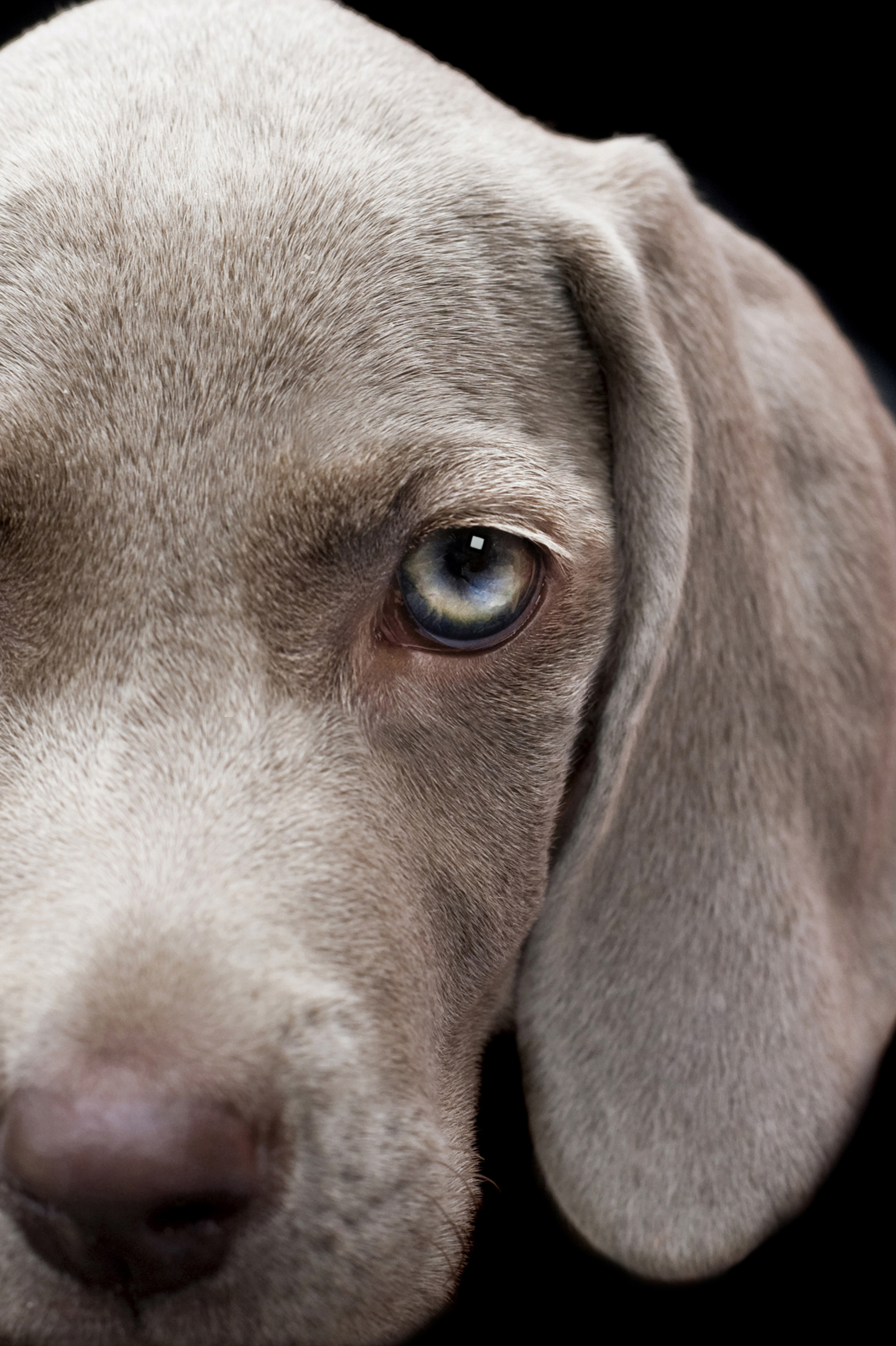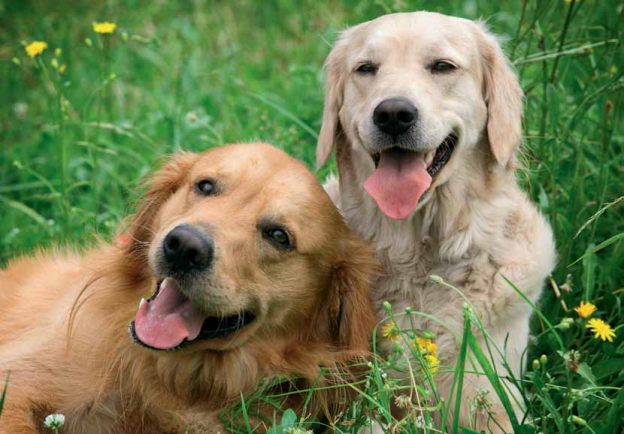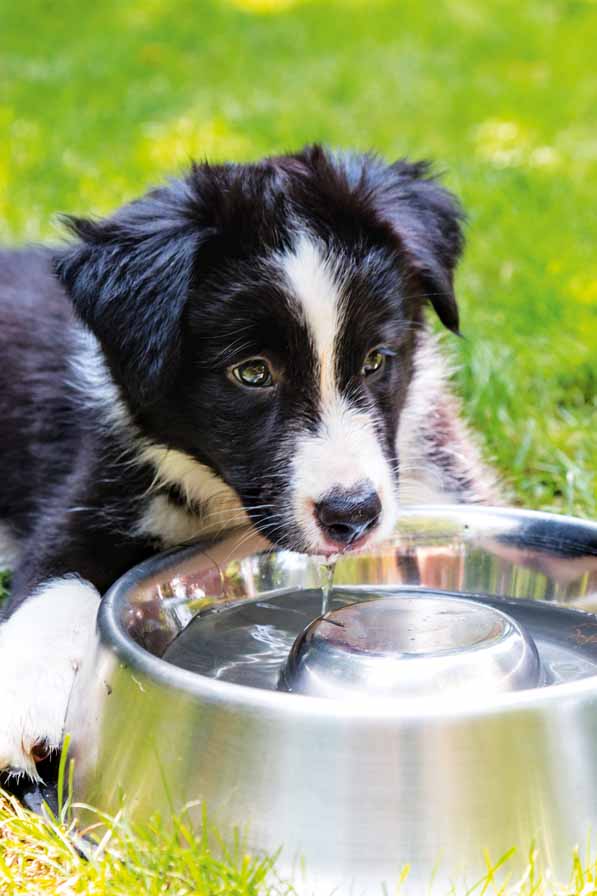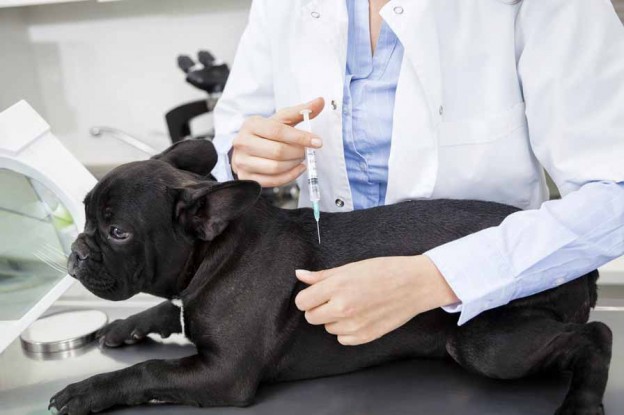
Vaccinating your puppy can give him much-needed protection against the potentially deadly parvovirus. Tim Falk reports.
Everyone remembers the last time they had gastro — after all, the unfortunate symptoms of a nasty stomach bug make it very hard to forget. Just like us, our dogs can suffer gastroenteritis as well, in the form of a viral infection called parvovirus. But unlike most of the viruses we’ll ever catch in our lifetimes, parvo is serious and can even be deadly.
What is it?
“Parvo is a gastroenteritis that is caused by a very small and very infectious virus (called parvovirus) that mostly occurs in young puppies,” says Dr Colin Dick from Pascoe Vale Vet Hospital. “This virus is very resistant to many household disinfectants and has the ability to survive in the environment (like in the park where you walk your pets) for a very long period of time.”
Parvovirus is very easily transported around the community on people’s shoes and clothes, therefore allowing it to rapidly spread from one suburb to the next. Unvaccinated dogs can catch parvo if they eat or lick the virus after an infected dog has left the virus behind in their faeces.
What can it do to my dog?
A case of parvo can be quite unpleasant and painful for any dog. “Parvovirus attacks the cells that line the stomach and intestines, causing severe damage to these organs,” explains Dr Elise Anderson from animal welfare organisation Animal Aid.
This nasty disease actually infects any cell that is rapidly growing and dividing, so other cells in the body that are damaged are the white blood cells which fight infection. This means that when a dog gets infected they will begin vomiting, have bloody diarrhoea and have a reduced ability to fight this and other infections. Parvo can be fatal, especially when contracted by a young puppy.
With this in mind, the first two symptoms owners need to keep an eye out for in their pooch are vomiting and diarrhoea. “The diarrhoea is often foul smelling and may have blood in it,” Dr Anderson says.
“Animals quickly become very dehydrated and may be lethargic, collapse, or even die suddenly. Parvo is extremely serious and in many cases can be fatal if not treated promptly and effectively.”
Dr Dick explains that some owners may also notice their dog becoming “flat” shortly before the onset of vomiting and diarrhoea. However, any pets, especially puppies, showing any of these symptoms can have a test done at their local vet clinic to test whether or not they have parvo.
No cure for parvo
As parvo is caused by a virus, there is no immediate “cure” available for your dog. “After a diagnosis has been made, there is no magic pill for treating parvo,” Dr Dick confirms.
The vomiting and diarrhoea brought on by parvo can cause your dog to lose a large amount of fluid, so treatment mainly focuses on managing this problem. In most cases this involves a hospital stay and intravenous fluids.
“Treatment is aimed at supporting the body by preventing dehydration and secondary infections. This typically involves hospitalisation and intravenous fluids, anti-emetics (anti vomiting medication) and antibiotics usually for many days,” Dr Dick says.
In serious cases, plasma or blood transfusions may be required to alleviate blood and protein loss. Treatment can be intensive, difficult and expensive, and even then not every dog will survive.
What methods of prevention are available?
Almost all cases of parvo occur in dogs which are not vaccinated. Puppies are most at risk of contracting the virus, particularly those that haven’t yet finished their course of vaccines because they are not fully protected against parvo. However, any dog that is not up to date with their vaccinations may be at risk.
“Luckily, standard dog vaccines (C3, C4 and C5) provide excellent protection against canine parvovirus,” Dr Anderson says. “Importantly, ensuring that bitches are up to date with their vaccinations means that they have plenty of antibodies that they can pass on to their puppies to protect them in the first weeks of their lives.”
Dogs which are not in good health are also at greater risk of any infection, so good diet and good parasite control programs are also important in maintaining good general health and resistance to disease. For a full rundown on the vaccinations your dog needs and when to have them, book in for an appointment with your vet.
While parvovirus is a serious and potentially fatal viral infection, it’s incredibly simple to minimise the risk of your dog ever contracting the condition. Make sure to follow a few simple steps and the pain of parvo will never be a problem for your pooch.
Did you know?
Parvovirus is incredibly tough and is very resistant to drying out, sunlight and common disinfectants. This means that it can live in the environment and on bedding, bowls and other objects (including people, their clothes and shoes) for a long time, and dogs can be infected without ever coming into direct contact with a sick or infected dog.







